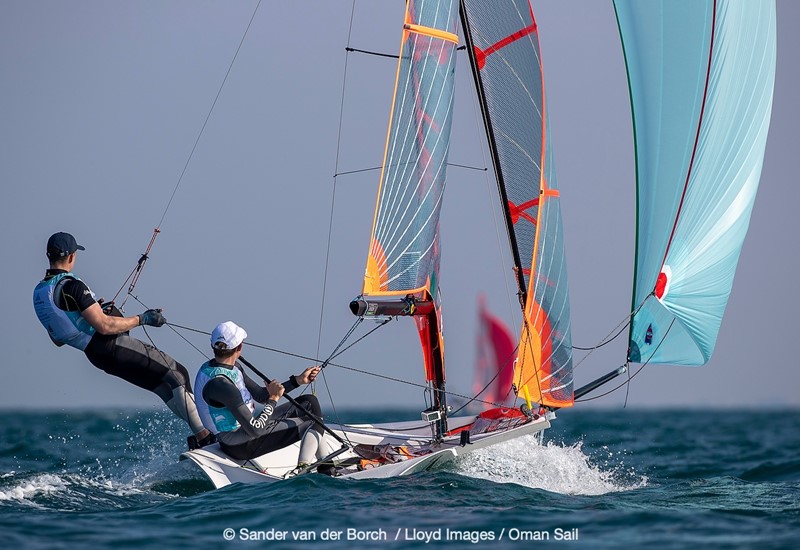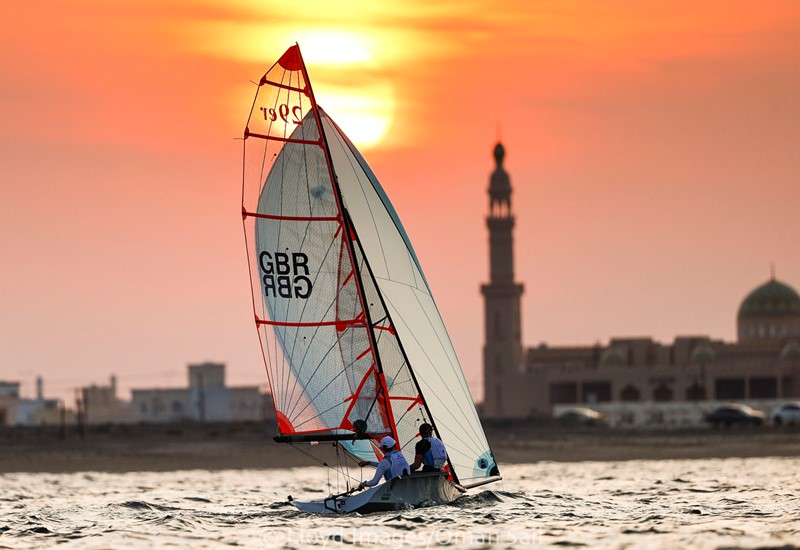Leo Wilkinson spent 10 days in Oman before Christmas, representing Great Britain at the Youth Sailing World Championships.

One boat or board per nation competed in each of the 11 events, which included single and double-handed boats, windsurfers, and kite surfers, with 433 sailors from 56 nations taking part. To be selected to represent your country at the Youth Worlds is the pinnacle of youth sailing and every young sailor's dream. Leo, who is studying Engineering Extended Diploma Level 3, and his crew Sam Jones from Hampshire, competed in the men’s 29er class, the stepping-stone to the Olympic 49er. They had several top 10 finishes during the five days of racing and ended 16th overall.
Leo learned to sail at Maidenhead Sailing Club when he was nine years old and went on to join their Youth and Junior training sessions. He progressed into the RYA UK Junior Squad, became Topper World Champion in 2019, and is now in his third year in the RYA UK Youth Performance 29er Squad.
Speaking about the trip to Oman, Leo said: “It was a fantastic experience of being in a British squad, living together and supporting the other team members in each of their events and enjoying the massive opening and closing ceremonies. It was also great to meet all the other teams. We didn’t really see anything of Oman as we were bubbled at the resort but sailing home in the sunset past mosques and seeing turtles swim by was amazing. The wind was exceptionally light though, which is vastly different from conditions around the British coast, so it was close racing.”
Leo joined The Henley College in 2020. He originally chose A Levels in Maths, Physics and Environmental Science but soon realised he was more suited to a practical subject and changed to BTEC Engineering Level 3. The main difference between A Levels and BTEC vocational courses is that they are assessed differently, with A Level students sitting final year exams, and BTEC students being assessed continually throughout, via a combination of course work and assessments. As Leo is dyslexic, he felt that studying subjects that involved lots of written work and traditional end-of-year exams would not allow him to show his abilities fully, whereas the BTEC in Engineering, allows him to continue studying Maths and Physics but in an applied setting.
As it is Leo’s ambition to become a professional sailor in the future, he chose Henley as the College’s efficient timetabling meant he was able to balance his studies with his sports training more effectively than if he had remained within a school environment.
“College has made it much easier to fit my work around training and travelling than school would have. College involves long days, but I get most of my work done during the day at one of the College’s various study spaces and student learning centres. I have an entire day free of classes, which I use for some of my fitness training and event or boat preparation. The College have also been helpful in arranging my timetable so that I only have first lesson on Fridays so I can get on the road to my weekends away training or racing by lunchtime. My teachers have also given me extended deadlines or rescheduled assessments when I have been abroad competing.”
When asked what advice he would give someone who is deciding on what to do after GCSEs, Leo said:
“Enjoyment is the most important thing. Everyone said I should do A levels, but the BTEC is much more enjoyable.”
Leo receives support from SportsAid, ActiveIn and British Youth Sailing. Applications to join The Henley College in September are open >> Apply Online
Picture credits: Mark Lloyd (@lloydImages) and Sander van der Borch (@sandervanderborch.photography)









